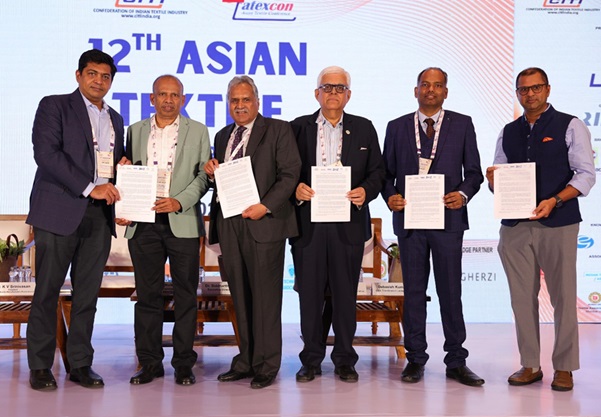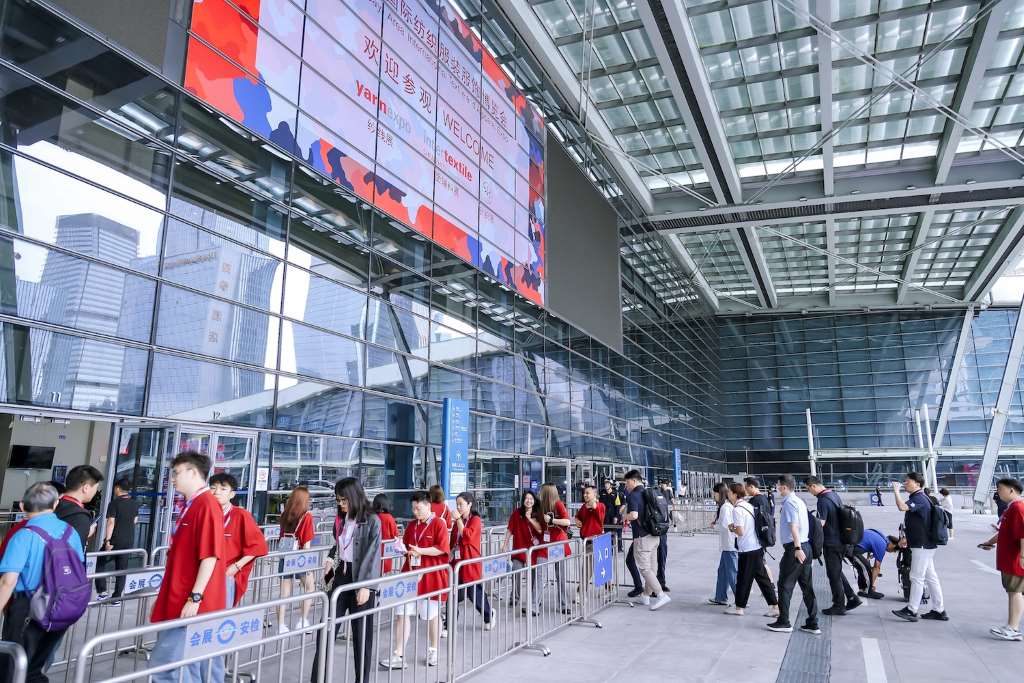FW

The Netherlands, once a bastion of brick-and-mortar retail, is going throough a multifaceted transformation. From bustling city centers to quaint provincial towns, the familiar landscape of shops is morphing, due to several reasons that are reshaping consumer behavior and forcing businesses to adapt or perish. The fashion and apparel sector, in particular, is facing tough competition from online retailers, changing consumer preferences, and economic pressures, now further complicated by the explosive growth of discount retailers.
The digital disruption and discount divergence
The most significant change driver is, undoubtedly, the relentless rise of e-commerce. Dutch consumers are increasingly opting for the convenience and accessibility of online shopping, leading to a decline in foot traffic for traditional retailers. As per Statistics Netherlands (CBS), online retail sales in the Netherlands have consistently increased over the past decade. However, a parallel trend is emerging: the rapid expansion of discount stores, driven by economic uncertainty and inflation.
Table: Growth of online retail sales in the Netherlands
|
Year |
Online retail sales (bn €) |
Percentage change |
|
2018 |
23.7 |
12.80% |
|
2019 |
25.8 |
8.80% |
|
2020 |
30.5 |
18.20% |
|
2021 |
33.2 |
8.90% |
|
2022 |
34.5 |
3.90% |
|
2023 |
35.8 (estimated) |
3.80% |
Source: Statistics Netherlands (CBS)
"The ease of comparing prices and accessing a vast selection online is undeniably appealing," says consumer behavior analyst, Annelies de Vries, from the University of Amsterdam. "For many, the physical store is becoming less about purchasing and more about experiencing or trying before buying. However, with rising inflation, another factor is now heavily influencing consumer behaviour: price."
Discount store takeover
Recent research by Locatus, reported by the Volkskrant, reveals a significant rise in discount retail. Nearly 120 discount drugstores and textile supermarkets have opened in the Netherlands in the past five years. This trend highlights the growing price sensitivity of Dutch consumers. "The higher the deal content, the sooner the consumer comes and buys," says sector manager Olaf Zwijnenburg of Rabobank, emphasizing the impact of inflation on consumer behavior.
Discount store growth (2020-25)
· Medikamente die Grenze: +50 stores
- Kik: +30 stores
- Wibra: +34 stores
- Action: +31 stores
The bankruptcy of Blokker created an opportunity for discount retailers. Approximately 350 large retail spaces became available, which were quickly snapped up by chains like Wibra, Kik, Normal, TerStal, and Kruidvat. Kik, for instance, is planning to take over around 20 former Blokker locations. This case shows how economic instability can create opportunities for discount retailers to expand their footprint.
The fashion and apparel sector is particularly vulnerable to these shifts. The rise of fast fashion giants like ASOS, Zalando, and Shein, with their aggressive pricing and rapid trend cycles, has put immense pressure on traditional Dutch clothing retailers. Now those same retailers face competition from discount clothing stores.
Zeeman, while closing some branches, is still the largest discount clothing chain in the Netherlands, and that shows the need for lower priced clothing. The company is now focusing on online sales and southern Europe growth. This shows that even discount retailers are needing to adjust. "The fashion industry is facing a perfect storm," says retail consultant, Mark van Dijk. "Consumers are demanding more sustainable and ethical products, while also expecting fast delivery, competitive prices, and now lower prices due to inflation. This is a difficult balance to strike."
Headwinds and how to survive
Beyond the digital disruption and the rise of discount stores, several other factors are contributing to the challenges facing Dutch retailers. Rising operating costs is a bane. Increasing rents, energy prices, and labor costs are squeezing profit margins. Consumers too are prioritizing experiences over material possessions, leading to a decline in spending on traditional retail goods. Then there are sustainability concerns. Growing awareness of environmental issues is prompting consumers to demand more sustainable and ethical products, which can be more expensive to produce. Inflation and economic slowdowns too have reduced consumer spending, and amplified the want for discount options.
Despite the challenges, many Dutch retailers are finding ways to adapt and thrive. They are opting for omnichannel integration which involves blending online and offline experiences to provide a seamless customer journey. The focus is on creating unique and engaging in-store experiences to attract customers.
More and more retailers are now focus on niche markets which means they are catering to specific customer segments with specialized products and services. They are also focusing on personal interactions and providing excellent customer service. Investing in sustainable practices and offering eco-friendly products is another important step.
Retailers are using data to understand customer behavior and personalize offerings. What’s more, many retailers need to offer competitive pricing, or risk losing customers to discount stores. "The future of retail is not about choosing between online and offline," says de Vries. "It's about creating a seamless and engaging experience that meets the evolving needs of the consumer, which now includes a strong emphasis on value and affordability."
Thus the Dutch retail space is in a state of flux, and the coming years will undoubtedly bring further changes. Retailers that can adapt to the digital age, embrace sustainability, provide exceptional customer experiences, and offer competitive pricing will be best positioned to succeed. The fashion and apparel sector, in particular, must navigate the complexities of fast fashion, sustainability, changing consumer preferences, and the increasing dominance of discount retailers to remain competitive. The need to offer value, and lower priced options is more important than ever.
India is planning to shift sourcing of certain products from other countries to the US to reduce its trade surplus as both nations continue negotiations on a trade deal. As a first step, New Delhi may cut apple imports from Turkey and New Zealand, and high-end fibre from China, instead sourcing them from the US, say officials said. This move will have an impact on various sectors
Impact on the textile & apparel industry
Synthetic fiber sourcing: India imports significant quantities of high-tenacity and specialty synthetic fibers (like certain polyesters, nylons, and aramids) from China, Taiwan, and Germany. These are crucial for technical textiles, high-performance apparel, and industrial applications. Sourcing these from the US could diversify India's supply chain and reduce dependence on a single region. However, it raises questions about cost competitiveness and the availability of specific fiber types as US-produced synthetic fibers may be more expensive than that from China or Taiwan, impacting the cost of finished goods. Also ensuring the US can supply the exact types and quality of fibers needed is crucial. Logistics and lead times is another issue as establishing reliable supply chains from the US needs careful planning.
As per various trade data, China is a dominant player in supplying synthetic fibers to the world. Supply of specific high end fibres is very important. For example, Aramid fibers are important for defence and high end applications and there is a price difference between the fibre from China and the US.
Cotton sourcing: India imports cotton from various countries, including Egypt (long-staple cotton), Australia (high-quality cotton), and others. Fluctuations in global cotton prices significantly impact the Indian textile industry. The US is a major cotton producer. Shifting some cotton sourcing could strengthen trade ties and potentially provide a stable supply. However, matching the specific quality and staple length of cotton from Egypt or Australia with US cotton is essential. For example, Egyptian cotton is known for its long staple length and high quality, it's used in luxury textiles. Replacing this with US cotton requires careful assessment of fiber properties. Similarly, Australian cotton is also known for its good quality and sustainable farming practices.
Meanwhile global cotton prices are subject to volatility, and sourcing from the US won't eliminate this risk. And disrupting existing cotton trade relationships could have repercussions for India.
Impact on finished goods
Increased costs of raw materials like fibers and cotton could lead to higher prices for finished textile and apparel products. This could impact the competitiveness of Indian exports in the global market. However, if the US can provide high-quality materials, it could enhance the value and premium positioning of Indian textile products.
However cost competitiveness is a primary concern for US-sourced materials compared to existing suppliers. And shifting sourcing could disrupt existing supply chains and require significant adjustments. Trade relations too could get impacted and balancing trade relations with the US while maintaining relationships with other trading partners is crucial.
However, the threat of reciprocal tariffs adds uncertainty and could impact trade flows. At the same time, efficient logistics and infrastructure are essential for smooth trade between India and the US.
Potential benefits
One major benefit of increasing sourcing from the US it will help in diversification of supply chains and reducing reliance on single-source suppliers. It would also strengthen US-India trade relations and foster closer economic cooperation. What’s more, it could lead to collaborations in textile technology and innovation. And better trade relations with the US could lead to better market access for Indian finished goods.
However detailed cost-benefit analysis of sourcing materials from the US compared to existing suppliers needs to be done going ahead. Establishing robust quality assurance mechanisms to ensure US-sourced materials meet the required standards is also important.
Indian manufacturers need to forge strategic partnerships with US textile companies to facilitate technology transfer and supply chain integration. The Indian government too needs to provide support to the textile industry to navigate these changes.
India’s cotton production is projected to decline to 29.5 million bales during the current season ending in September 2025 from the 32.5 million bales produced in the previous season.
As a per a report by the Committee on Cotton Production and Consumption, India’s cotton imports in the 2024-25 season are expected to increase to 2.5 million bales from 1.6 million bales in 2023-2024. Cotton exports are predicted to rise to 1.8 million bales. Domestic textile industry consumption is estimated to decline by 700,000 bales to 30.2 million bales from the last season. This cotton season is expected to end with a stock of lower stock of 3 million bales as against 6.2 million bales in 2022-2023 and the 4.7 million bales in 2023-2024.
With textile and clothing exports increasing, the demand for yarn has also risen. SK Sundararaman, Chairman, Southern India Mills’ Association, has urged the government to eliminate the import duty on cotton. This would ensure textile mills have sufficient cotton supplies between August and November of this year, he argues.
North Eastern Handicrafts and Handlooms Development Corporation (NEHHDC), has obtained the Oeko-Tex certification from Germany for eri silk under the leadership of the Ministry of Development of North Eastern Region.
Oeko-Tex is a globally recognized certification that ensures textiles, including raw and finished materials, are free from harmful substances and safe for human use. This certification enhances eri silk’s marketability in the global textile industry, ensuring compliance with international safety and quality standards. It strengthens consumer confidence, supports eco-friendly initiatives, and boosts the global acceptance of Indian eri silk in high-end markets.
This eri silk certification ensures the fiber meets global textile safety standards. It boosts consumer confidence by guaranteeing chemical-free, eco-friendly production. It also enhances global marketability and aligns with sustainability trends, attracting ethical and environmentally conscious buyers.
The government has established Central Muga & Eri Research Institute (Lahdoigarh, Assam) for R&D, training, and extension of support to eri silk. These R&D efforts focus on modernization, improved production techniques, and technological upgrades.
The government has also established the Muga Eri Silkworm Seed Organization for the production and supply of quality eri silkworm seeds besides implementing the Silk Samagra-2 Scheme (2021-26) for the overall development of India’s sericulture industry, including eri silk.
The eri silk sector is currently largely unorganized with traditional methods still being widely used. The sector needs to be modernized to improve production efficiency and productivity. The sector suffers from a limited awareness among stakeholders about global certification requirements.

The 12th edition of the Asian Textile Conference (ATEXCON 2025), organized by the Confederation of Indian Textile Industry (CITI), successfully concluded today at the Courtyard by Marriott, Mumbai. Gherzi, a leading global textile consulting firm, served as the official knowledge partner for the event, which brought together industry leaders, policymakers, and experts to explore Asia’s growing influence in the global textile sector.
Asia’s dominance in textile manufacturing
Asia remains the backbone of the global textile and apparel sector, playing a crucial role across the value chain. The region contributes approximately 63 per cent of the world’s total cotton production and an overwhelming 90 per cent of global man-made fiber (MMF) production, positioning it as the largest supplier of raw materials. Additionally, with around 90 per cent of the world’s total spinning capacity and 85 per cent of global knitting capacity, Asia continues to be the world's leading textile manufacturing base.
ATEXCON 2025 emphasized the need for Asian economies to enhance value addition and increase unit value realization (UVR) in exports. In his welcome address, Rakesh Mehra, Chairman of CITI, stressed that while boosting export volumes is essential, the focus should also be on manufacturing high-value products. “Exporting high-value products with greater UVR should be a priority for all Asian countries,” he stated, underlining the significance of strategic growth to maintain competitiveness in global markets.
Strategic industry initiatives and policy discussions
The conference witnessed the release of two key documents aimed at shaping the future of India’s textile and apparel (T&A) sector. The ‘5-Point Agenda for the Indian T&A Industry (2025-26)’ outlines crucial policy interventions required to achieve India’s export target for 2025-26 and drive the industry towards $100 billion in exports by 2030. Another major announcement was the ‘Code of Conduct for Prevention of Child Labour and Forced Labour in the Indian Textile Industry,’ a voluntary commitment endorsed by AEPC, CITI, Indian Technical Textile Association (ITTA), SIMA, TEA, CMAI, MATEXCIL, PDEXCIL, and TEXPROCIL to ensure ethical practices across the textile value chain.
Key sessions at ATEXCON 2025 addressed pressing industry challenges and future opportunities. The theme session, ‘Asia Steering Global Growth,’ highlighted the region’s strategic position in global textile markets and the necessity for collaborative growth. Other discussions focused on trade dynamics, policy shifts, and technological disruptions. David Uricoli, Partner at Gherzi USA, moderated a session on evolving trade policies and geopolitical shifts, while Siddharth Rajagopal, Executive Director of TEXPROCIL, led discussions on enhancing Asia’s global competitiveness.
Another significant session, moderated by Suryadeb Mukherjee of Gherzi Consulting, explored the transformative impact of AI, automation, and digital tools on textile manufacturing and sustainability. S K Sundararaman, Chairman of SIMA, examined growth opportunities in technical textiles, including medical, automotive, and geotextiles. Rahul Mehta, Chief Mentor at the Clothing Manufacturers Association of India (CMAI), moderated a discussion on shifting consumer preferences, circular fashion, and the future of fashion trends.
Key takeaways and future roadmap
The conference underscored Asia’s role as the global hub for textile production and innovation, with an increasing emphasis on sustainability, digitization, and policy alignment. As businesses navigate a rapidly evolving landscape, insights from ATEXCON 2025 are expected to guide the industry toward a more resilient and future-ready approach.
The event concluded with a valedictory session that summarized key takeaways and laid the groundwork for future collaborations, ensuring that Asia continues to drive global textile growth through innovation, sustainability, and strategic partnerships.
Set for substantial expansion, the ASEAN alpaca fiber market is projected to grow at a compound annual growth rate (CAGR) of 6.2 per cent from 2025 to 2035 to reach a valuation of $320.4 million by 2035.
This growth will be fueled a rising demand for sustainable, high-quality natural fibers in the textile and fashion sectors. Known for its softness, durability, and excellent thermal insulation, alpaca wool is driving its use in luxury apparel, home textiles, and accessories.
As sustainable fashion trends gain momentum and fiber processing technologies advance,
ASEAN nations are becoming significant players in the global alpaca fiber industry. The worldwide shift towards ethical and environmentally friendly fashion is boosting demand for alpaca fiber. Its hypoallergenic, lightweight nature, coupled with superior thermal properties, makes it highly desirable.
With their robust textile manufacturing infrastructure, ASEAN countries are leveraging their capabilities to process and produce alpaca fiber. The ASEAN alpaca fiber market features a blend of domestic and international companies, all competing to capture a growing consumer base.
Government policies supporting eco-friendly industries and sustainable agriculture are further encouraging the adoption of alpaca fiber in the region. Innovations in fiber sorting, grading, and blending techniques are improving the quality and efficiency of alpaca fiber production.
Zyod, a leading tech-enabled B2B apparel manufacturing company, has appointed Ankit Shukla as Vice President of Business. With over 20 years of industry experience, he will lead Zyod’s global expansion, drive innovation, and enhance operational efficiency through AI and automation.
In his new role, Ankit will focus on strategic market expansion, revenue growth, and supply chain optimization. His expertise in business transformation and technology-driven solutions will strengthen Zyod’s position in agile fashion manufacturing.
Expressing his vision, Ankit Shukla said, “I am excited to join Zyod and contribute to its mission of innovation and disruption in fashion. My goal is to enhance speed, scalability, and sustainability in fashion sourcing while leveraging AI and automation to meet evolving market demands.”
Ankit Jaipuria, Co-Founder of Zyod, welcomed the appointment, stating, “Ankit’s strategic acumen in apparel manufacturing will be invaluable. His leadership will help expand our global presence, strengthen industry alliances, and reinforce Zyod’s position as a market leader.”
Before joining Zyod, Ankit held leadership roles at PDS Limited and Concord Ventures Group, where he spearheaded multi-million-dollar business expansions, built global partnerships, and optimized supply chain operations. His extensive experience in market dynamics and business strategy will play a crucial role in Zyod’s growth journey.
With this appointment, Zyod aims to accelerate its innovation-driven approach and solidify its presence in the global fashion manufacturing landscape.

After attracting nearly 20,000 visitors from 45 countries and regions last year, Yarn Expo Shenzhen is set to return from 11 to 13 June 2025 at the Shenzhen Convention and Exhibition Center (Futian). The event will once again reinforce South China’s position as a key hub for textile innovation, supported by the region’s strong infrastructure, expanded visa-free policies, and thriving apparel industry. Held alongside Intertextile Shenzhen and two other apparel shows, the expo will foster industry collaboration and showcase a wide range of in-demand yarns, fibres, and sustainable innovations.
A growing market and expanded global access
The global yarn, fibre, and thread market is projected to reach $138.7 billion by 2029, growing at a CAGR of 6.4 per cent, with Asia-Pacific holding the largest share. China’s expansion of its visa-free policy, now covering 18 additional countries with extended 30-day stays further facilitates international business opportunities. Positioned strategically in the Greater Bay Area (GBA), Yarn Expo Shenzhen serves as a major international sourcing platform, bridging the gap between domestic and global textile markets.
Highlighting the event’s significance, Wilmet Shea, General Manager of Messe Frankfurt (HK) Ltd, stated, “Held in mid-summer between the Shanghai editions, Yarn Expo Shenzhen fosters a comprehensive industry dialogue in the vibrant South China region. Its strategic positioning continues to drive advancements in sustainable practices and global collaboration.” With an efficient supply chain and strong textile production base, the GBA offers promising prospects for continued business expansion and innovation.
Showcasing innovation across key textile sectors
Yarn Expo Shenzhen 2025 will feature seven specialized zones, including the Cashmere Yarn Zone, the Chemical Fibre Zone, the Cotton Yarn Zone, the Fancy Yarn Zone, the Linen Yarn Zone, the Wool Yarn Zone, and the International Yarn Zone. Reflecting evolving industry trends, the fair will also highlight eco-friendly solutions through its New Green Fibre Materials display and fringe events focused on sustainability and innovation.
Past exhibitors have noted the expo’s effectiveness in facilitating business growth. Mohsin Ghoniya from Global Tex, India, shared his positive experience: “Shenzhen has a vibrant knitting market, and our 20 carded knitting yarn is in high demand. The fair has helped us secure numerous orders from sweater manufacturers.” Similarly, Xie Yongxian, Sales Manager of Foshan Anxin Fiber Technology Co Ltd, emphasized the rising demand for high-performance and eco-friendly fibres, stating, “Breakthroughs in textile development depend on raw material innovation, and this fair is an excellent platform to track industry progress.”
A comprehensive platform for the textile industry
The 2025 edition of Yarn Expo Shenzhen will be held alongside Intertextile Shenzhen Apparel Fabrics, BIRD Fashion Fair, and PH Value, creating a comprehensive trade platform for the entire textile value chain. Organised by Messe Frankfurt (HK) Ltd, the Sub-Council of Textile Industry, CCPIT, China Cotton Textile Association, and China Chemical Fibers Association, the event aims to strengthen industry connections and inspire future advancements in textile manufacturing.
Launched by ABFRL, the modern Indian man's wedding wear brand, Tasva has unveiled its flagship store in Pune in collaboration with renowned couturier Tarun Tahiliani.
Spanning 2,400 sq ft, the new store underscores Tasva's dedication to delivering luxury and elegance through meticulously crafted garments and a unique shopping experience.
Designed to offer an immersive experience, the store resonates with the evolving tastes of India's cosmopolitan men. It blends heritage-inspired aesthetics with contemporary sophistication, reflecting Tasva's vision of redefining modern Indian menswear.
Showcasing Tasva's festive collection, the store features stunning kurta sets and bundis, with vibrant screen prints and modern silhouettes adding a fresh twist to traditional attire. The wedding collection offers luxurious sherwanis, achkans, Indo-Western outfits, and bandhgalas, crafted from opulent fabrics and detailed with intricate embroidery.
Ashish Mukul, Brand Head, Tasva says, every detail, from the store design to the layout, has been meticulously curated to create a smooth and immersive shopping journey, offering clients a unique Tasva experience. With highly trained stylists providing personalized advice and assistance, the Pune store ensures an unmatched retail experience.
Tarun Tahiliani, Creative Director, Tasva shares, the brand reimagines Indian menswear with a superior fit that rivals the precision of Western tailoring, seamlessly infused into traditional attire. Every garment designed by the brand is meticulously crafted to provide a sharp, refined silhouette while ensuring effortless movement and comfort.
With a growing presence in major cities across India, Tasva continues to set new standards in premium ethnic menswear, offering garments that celebrate tradition, craftsmanship, and modern sophistication.
To be held in Phnom Penh from March 31-April 1, 2024 by the Textile, Apparel, Footwear, and Travel Goods Association in Cambodia (TAFTAC), the ‘Cambodia Global Textile Summit 2025’ will help catalyze sustainable innovation and policy development within Cambodia’s burgeoning textile sector.
To be organized under the theme ‘Shaping the Future: Competitiveness and Sustainability,’ the two-day event, at Sofitel Phnom Penh Phokeethra, will be presided over by prominent Cambodian officials, including Sun Chanthol, Deputy Prime Minister and Heng Sour, Minister of Labor and Vocational Training. The summit will provide a platform for networking, access to crucial industry data, and insights into sector forecasts and governmental policies.
Primary focus of the summit will be on strengthening collaboration between industry and civil society, fostering partnerships that support due diligence across the supply chain, and ensuring responsible manufacturing practices within Cambodia. The summit will convene government leaders, international brands, industry stakeholders, employers, and organizations to drive advancements in sustainability, innovation, and policy development.
Furthermore, the summit will address Cambodia's transition from Least Developed Country (LDC) status, highlighting the government’s strategic approach and its potential industry impact. Sustainability will be a central theme, with discussions covering responsible sourcing, compliance with emerging regulations, and best production practices.
Ultimately, the summit aims to foster multi-stakeholder collaboration, connecting government, industry, and civil society to ensure the apparel sector's competitiveness, sustainability, and inclusivity. The Cambodia Global Textile Summit 2025 is co-organized by TAFTAC, Better Factories Cambodia (BFC), GIZ, EuroCham Cambodia, and the Skills Development Fund (SDF).












